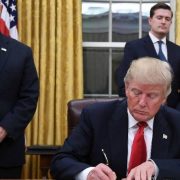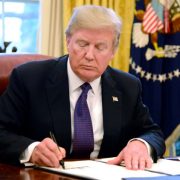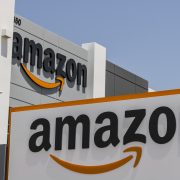Peter Thiel is a brilliant businessman. Ranked number four on Forbes “Midas List,” and number 315 on Forbes “400,” Thiel has a net worth of $2.6 billion. Without his entrepreneurial genius, the world would not know the ease of sending payments to vendors via Paypal, which he founded in 1999. But PayPal is just one of the many brainchildren of Thiel.
Thiel has been one of the most prominent players in the tech industry in Silicon Valley. But this chapter of his life about to come to an end. Fed up with the love of regulation so prominent in the San Francisco area, Thiel has decided to scale back his involvement in the mecca of the tech world.
Silicon Valley’s Love of Regulations
On paper, Thiel’s successes may not set him apart from other tech giants in Silicon Valley. But Thiel is very different than most of his colleagues. Thiel has always been very open about his dedication to free market principles and libertarian-leaning politics. In fact, his political activism has also led him to dabble in revolutionary ideas of decentralization, including his support of floating islands called “seasteading.”
But it is precisely this love of liberty and unbridled innovation that is alienating him from others in San Francisco. During a debate at Stanford University, Thiel referred to Silicon Valley as, “a one-party state. That’s when you get in trouble politically in our society, when you’re all in one side.”
Silicon Valley has a long history of leaning more to the left side of the political spectrum. Thiel rightfully believes that this political ideology is dangerous to innovators in the tech world, as it advocates for further regulation. Regulation that will, of course, inhibit the ability to bring many brilliant ideas to fruition.
This was one of his main reasons for supporting the now President Trump in the 2016 election cycle. Thiel caught a lot of criticism for this move, but it ultimately comes down to the more relaxed regulatory stance of the current administration.
Dedication to Principles
Love him or hate him, Trump has done a great deal to lessen the regulatory blow felt by many innovators and entrepreneurs like Thiel. In fact, Trump has already slashed more regulations than Ronald Reagan who, prior to Trump, held the record for deregulation.
And even though Silicon Valley, as well as the rest of the economy, would benefit greatly from the slashing of regulatory policies, the hatred for Trump is blinding many. This has caused many to turn their backs on Thiel as well. In fact, the CEO of Netflix and Facebook board member, Reed Hastings, wrote in an email that Thiel’s support of Trump demonstrated, “catastrophically bad judgment.”
Between Silicon Valley’s love of increased regulation and their condemnation of Thiel’s political leanings, he is finally calling it a day and relocating to Los Angeles. In fact, Thiel, who also happens to serve as the director of the Facebook board, is considering abandoning this post as well, a position he has held since 2005.
Not only does his decision to leave highlight Thiel’s own dedication to his work and his free market principles, it also highlights the absurdity of Silicon Valley.
Our country is overburdened with regulation. And it is precisely this red tape that prevents would-be entrepreneurs from sharing their genius with the rest of the world. But perhaps, this is why the big shots in Silicon Valley are so opposed to fewer barriers to entry.
Many of the Silicon Valley’s biggest players benefit from increased regulations, as it keeps their competitors from gaining entry into the market. Established businesses can afford to comply with regulations, whereas the newer, smaller startups cannot. An increase in regulation shields these companies from actually having to compete in the market.
But by slashing unnecessary regulation, which accounts for most, if not all of the regulations on the books today, more innovators are able to enter the market and compete with major players in the tech world. And when there are more players in the market, the consumers win.













